WWII Era German Map of Deggingen (Germany) U.S. Bring Back HEAVILY MARKED Map*






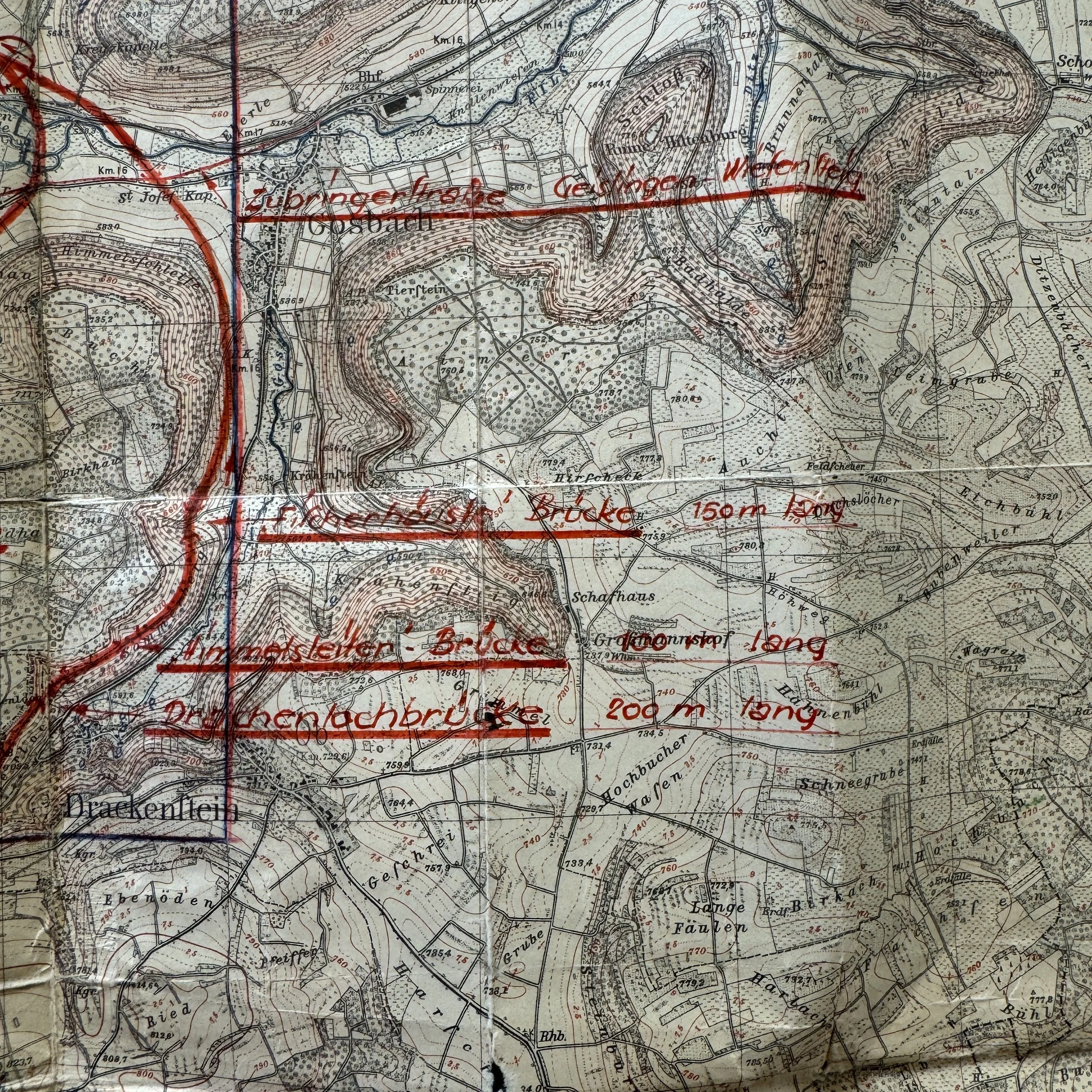
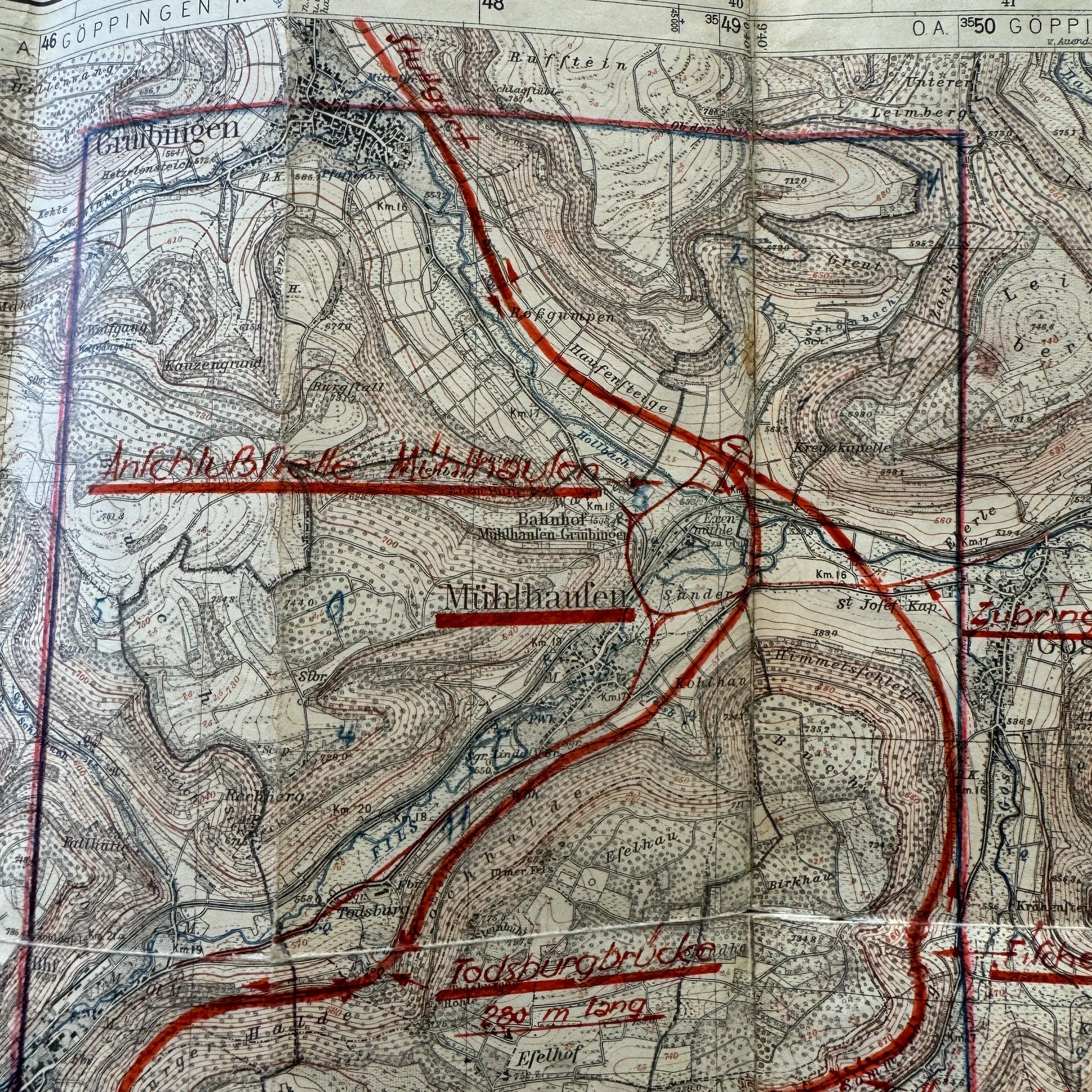



















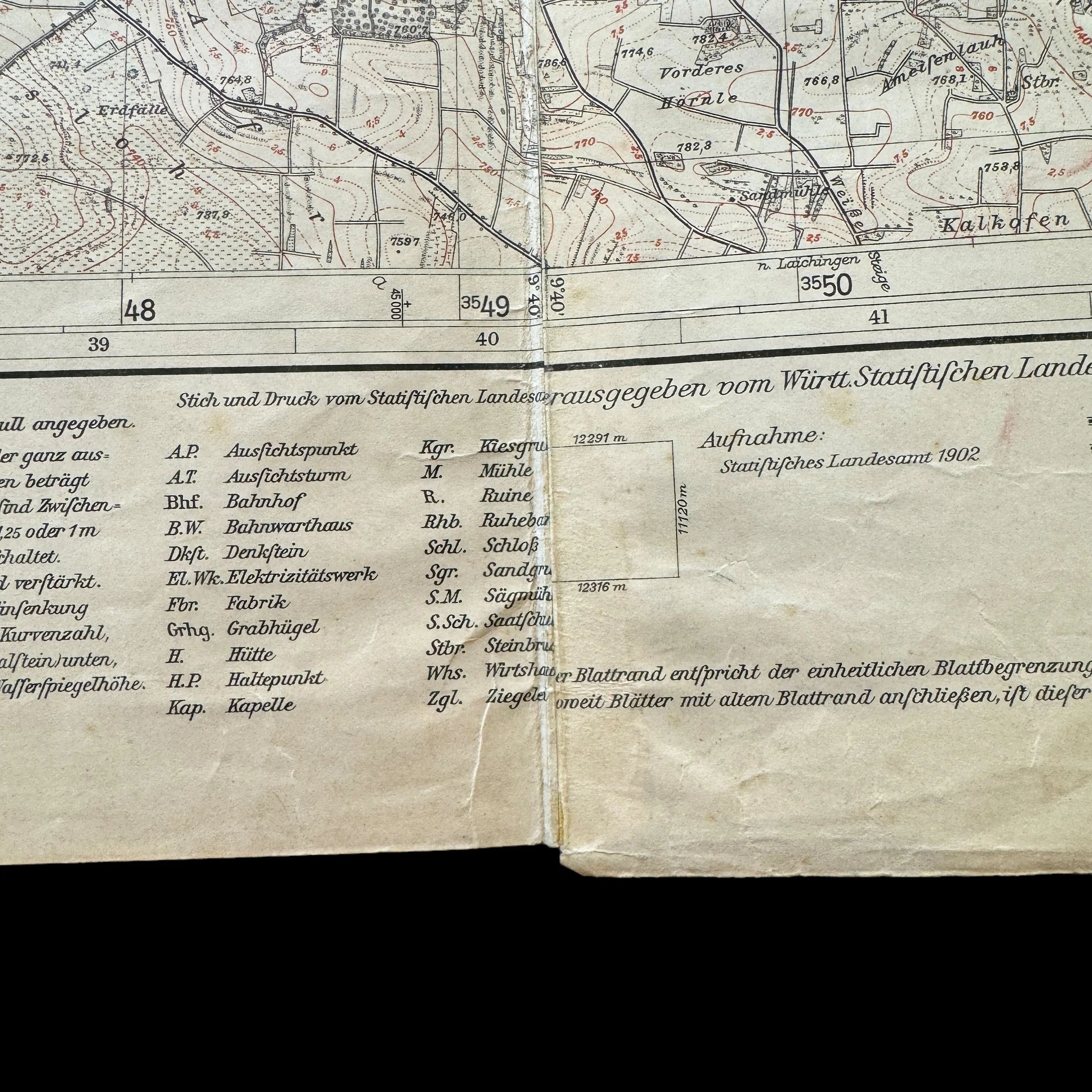







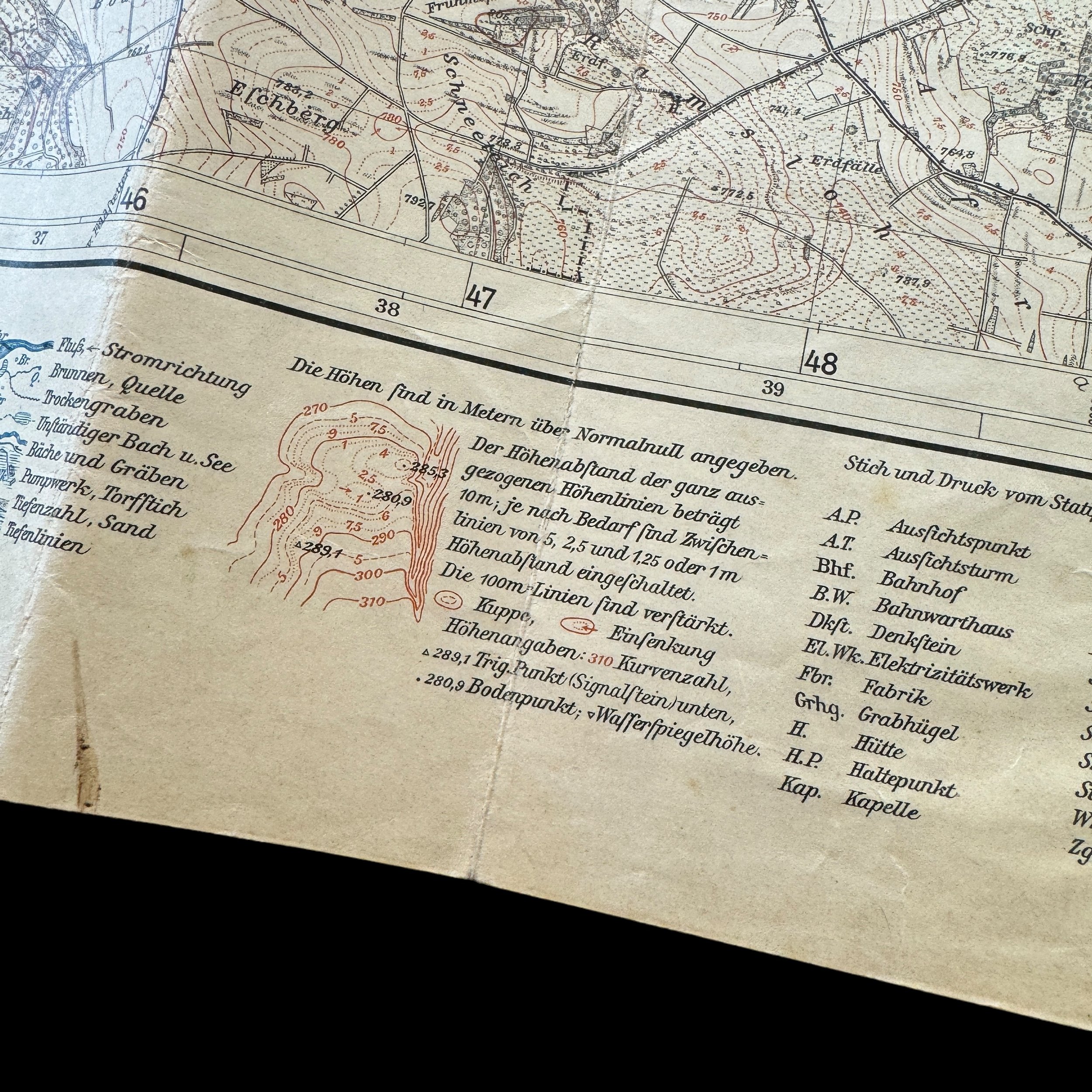






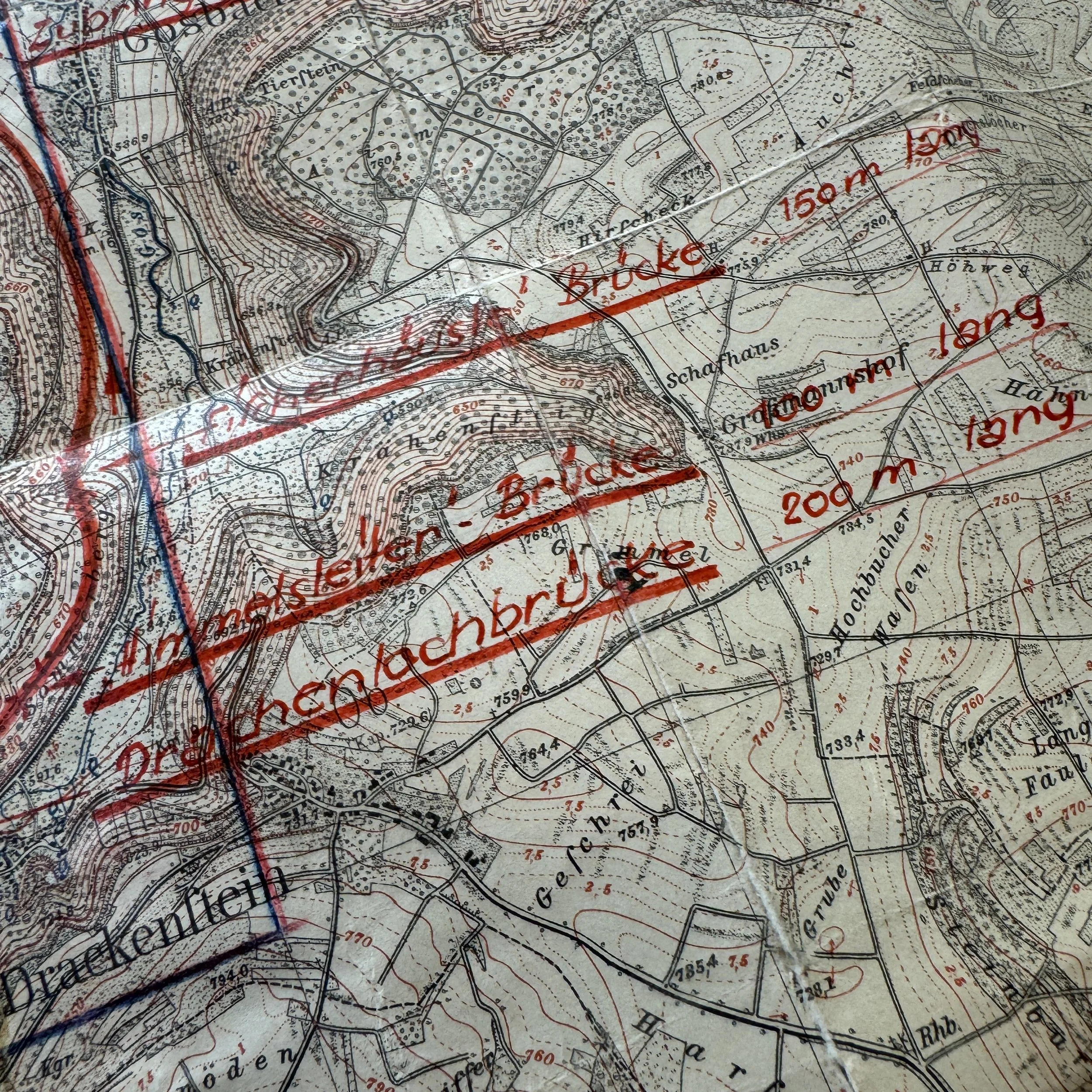
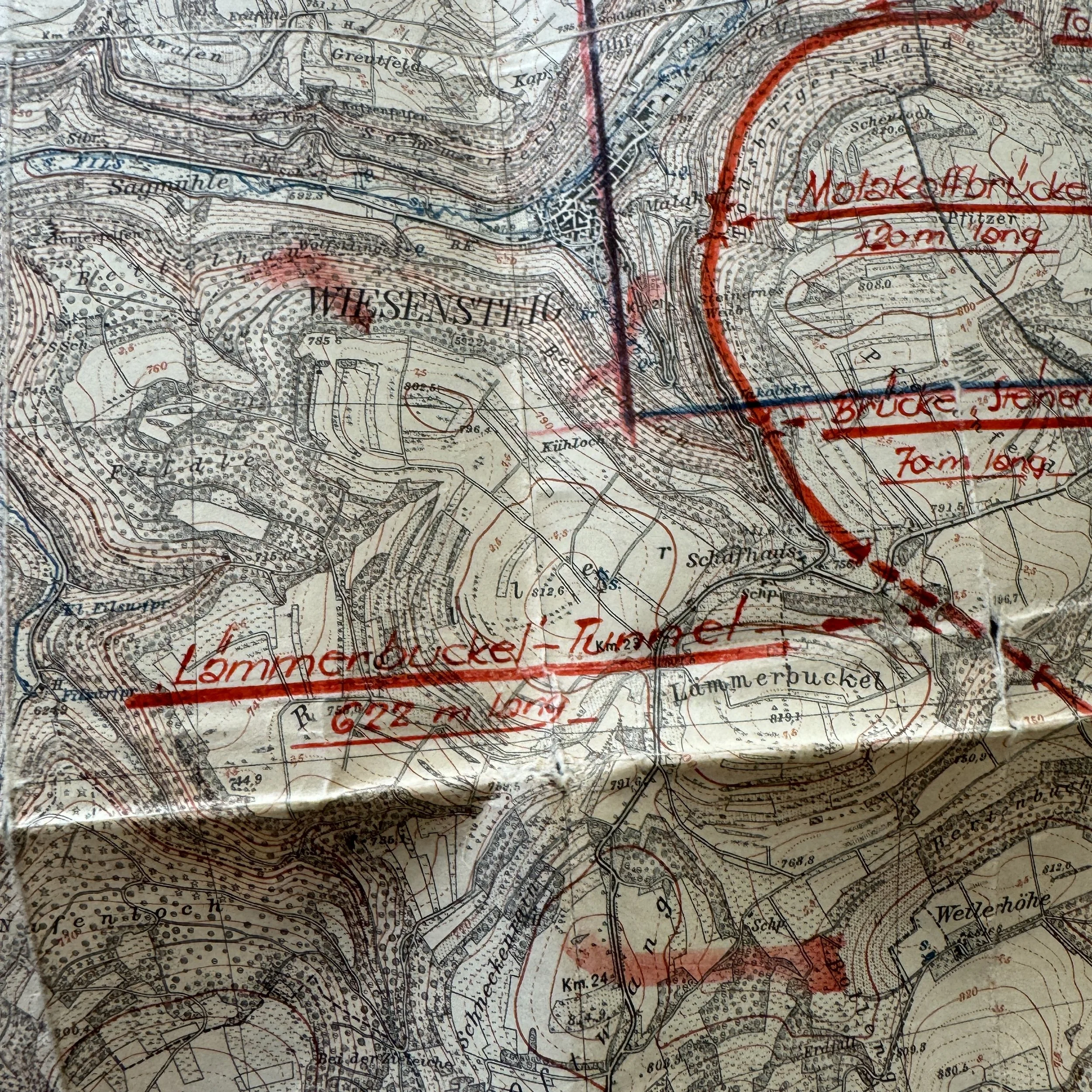




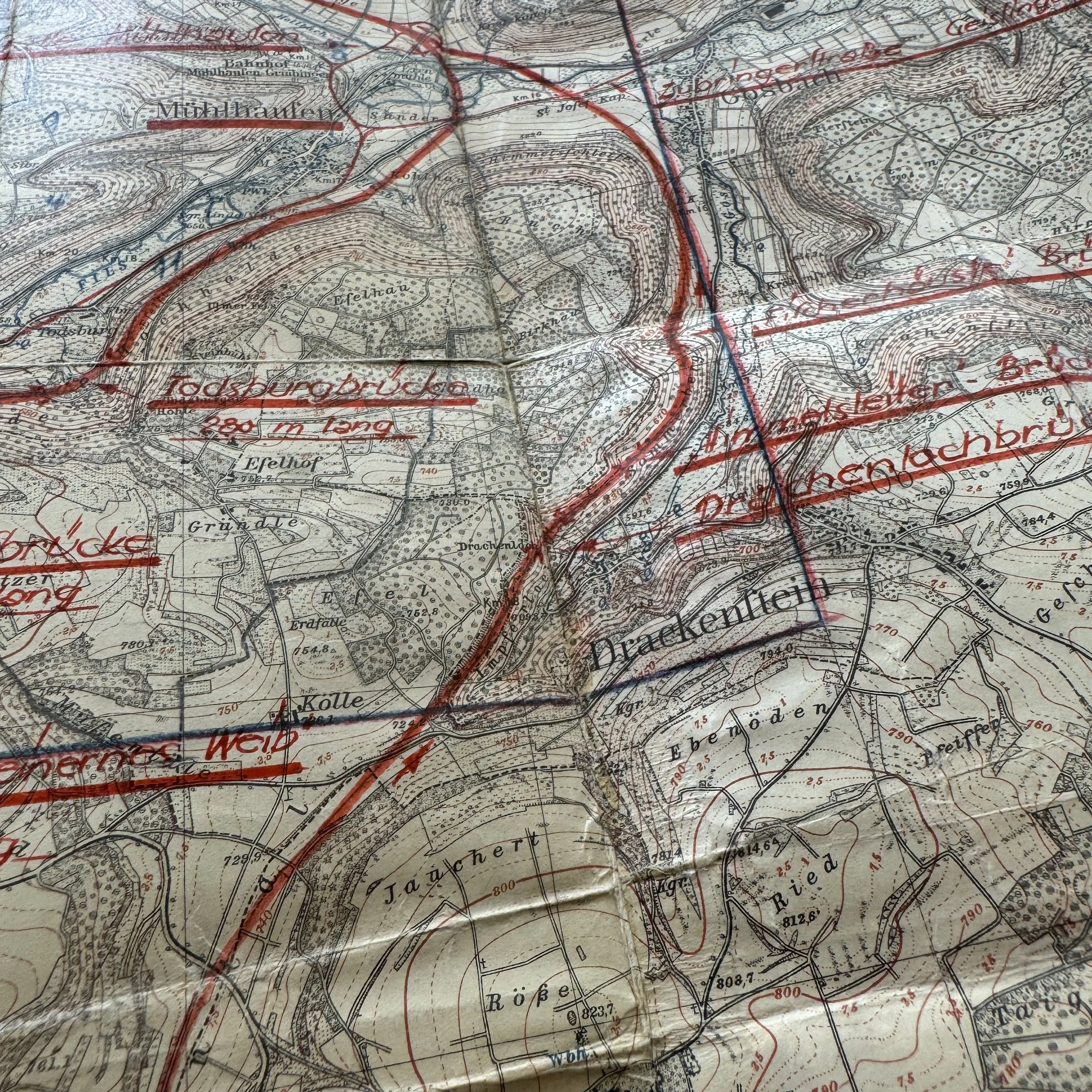
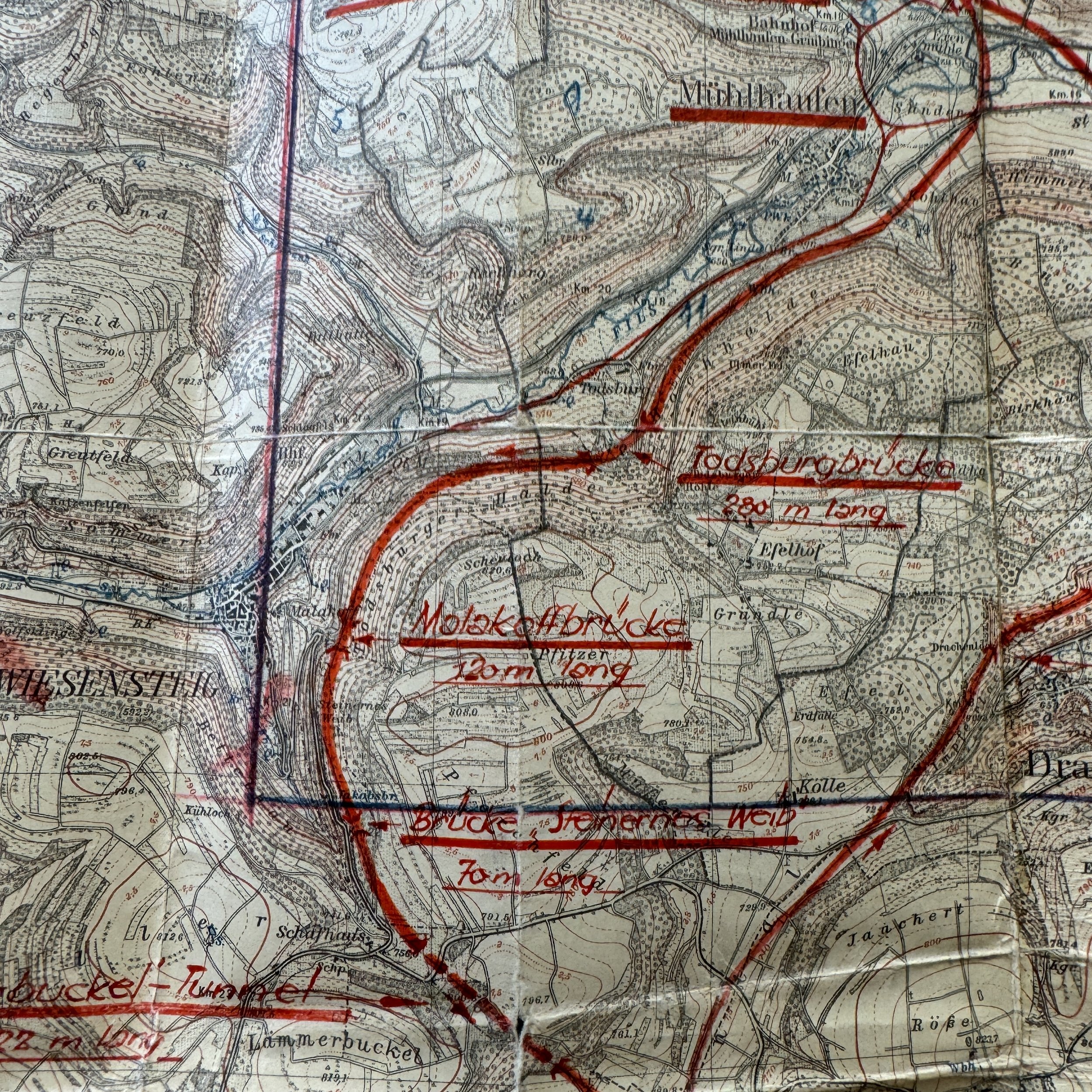
WWII Era German Map of Deggingen (Germany) U.S. Bring Back HEAVILY MARKED Map*
Comes with C.O.A.
Deggingen, a small town located in the district of Göppingen in the state of Baden-Württemberg, Germany, is nestled in the Swabian Alps. Though seemingly insignificant in comparison to larger cities, Deggingen's history during the first half of the 20th century provides a unique lens through which to examine the socio-political and economic dynamics of Germany, particularly during the tumultuous years of World War II. Understanding Deggingen's role during this period involves delving into its geographical, economic, and cultural context from 1900 to 1945, and examining how it reflected broader national trends and events.
Deggingen in the Early 20th Century
At the turn of the 20th century, Deggingen was primarily a rural community, characterized by agriculture and small-scale industry. The region around Deggingen was known for its natural beauty, attracting some tourism, which became more organized and prominent in the interwar period. The town's economy was largely agrarian, with most of its inhabitants engaged in farming, forestry, and related activities. The early 20th century in Germany was a period of industrial expansion and urbanization, yet rural areas like Deggingen maintained traditional ways of life even as they slowly integrated into the broader national economy.
The Rise of National Socialism and Its Impact on Deggingen
The interwar period in Germany was marked by significant political and economic instability. Following Germany's defeat in World War I and the Treaty of Versailles, the Weimar Republic faced severe economic hardships, including hyperinflation and unemployment, which contributed to widespread social discontent. This period saw the rise of the National Socialist German Workers' Party (NSDAP), led by Adolf Hitler, who capitalized on the economic woes and nationalistic sentiments to gain support.
Deggingen, like many other rural areas in Germany, was not immune to the political upheavals of the time. The National Socialists' emphasis on traditional values, rural life, and their promises to restore Germany's former glory resonated with many in Deggingen. The town's population, largely conservative and nationalist, found the rhetoric of the Nazis appealing. The NSDAP's rise to power in 1933 marked the beginning of significant changes in Deggingen, as it did across Germany. The Nazi regime implemented various policies aimed at mobilizing the population for its war efforts and ideological goals.
Deggingen During World War II
World War II, which lasted from 1939 to 1945, had a profound impact on all of Germany, including Deggingen. The town's strategic significance lay in its location and its resources, which were harnessed for the war effort. While not a major industrial hub, Deggingen contributed to the war through agricultural production, which was crucial in sustaining the German military and civilian population.
The war brought about several key changes in Deggingen:
Mobilization of Resources: The German war economy necessitated the full mobilization of all available resources. In Deggingen, this meant increased agricultural production, with local farmers being required to meet quotas set by the government. The town's agricultural output was vital for feeding both the local population and the military.
Manpower and Conscription: Like many other German towns, Deggingen saw a significant portion of its male population conscripted into the Wehrmacht (the German armed forces). This created labor shortages in agriculture and other local industries, which were partly mitigated by the use of forced labor and prisoners of war.
Infrastructure and Logistics: Deggingen's location in the Swabian Alps made it a relatively safe area compared to cities that were heavily bombed. As a result, it became a site for relocating industries and people from bombed urban centers. The town's infrastructure had to accommodate an influx of evacuees and the establishment of small-scale industries that supported the war effort.
Social and Cultural Impact: The war also had profound social and cultural impacts on Deggingen. The pervasive presence of Nazi ideology infiltrated all aspects of life, from education to local governance. The Hitler Youth and the League of German Girls were active in the town, indoctrinating the young population with Nazi values and preparing them for future roles in the regime.
The End of the War and Its Aftermath
The end of World War II in 1945 brought about significant changes in Deggingen, as it did throughout Germany. The defeat of the Nazi regime and the subsequent occupation by Allied forces marked the beginning of a new era. Deggingen, located in the American zone of occupation, underwent denazification processes aimed at removing Nazi influence from public life. This period also saw the return of soldiers, the integration of displaced persons, and the rebuilding of the local economy.
The immediate post-war years were challenging, as the town had to recover from the economic and social dislocation caused by the war. The agricultural sector, which had been heavily exploited during the war, needed to be revitalized. Additionally, the town had to address the needs of returning soldiers and refugees, which placed further strain on its resources.
Deggingen's history from 1900 to 1945 illustrates the profound impact of national and global events on local communities. While initially a rural and relatively isolated town, Deggingen was drawn into the sweeping changes brought about by the rise of National Socialism and the Second World War. The town's contributions to the war effort, the social and economic transformations it underwent, and its experience of the war's aftermath reflect broader trends in Germany during this tumultuous period.
Understanding Deggingen's role during World War II and its significance from 1900 to 1945 provides valuable insights into the experiences of smaller towns in Germany. These towns, often overshadowed by the narratives of larger cities, played crucial roles in the war effort and the broader socio-political landscape of the time. Deggingen's history is a testament to the resilience of local communities in the face of national and global upheavals, and it underscores the interconnectedness of rural and urban areas in shaping the course of history.